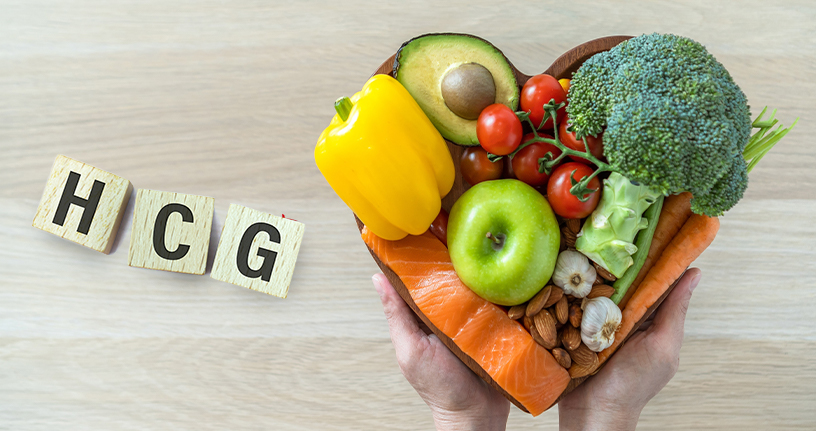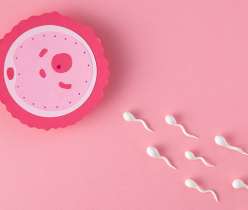Being overweight or obese is not just a health condition but a big factor causing mental trauma and hormonal disorders in many people around us. This is why people often make crazy decisions to lose weight to get a slim look. Taking the path of the Human Chorionic Gonadotropin (HCG) diet is one such way to lose weight quickly. The HCG diet is an effective weight loss plan that involves strict diets and medications, including daily injections of HCG. Your diet is a big factor in resetting your metabolism and losing 20–30 pounds within 30–40 days. However, the FDA has not approved any HCG medicines that offer rapid weight loss, and no scientific data supports these claims.
Why human chorionic gonadotropin diet
Usually, healthcare professionals don’t consider the HCG diet a healthy solution to lose weight. In this regard, the HCG diet is not a perfect weight loss plan as it involves medication through injections, oral drops, or drugs and an extremely low-calorie diet (typically 500-800 calories per day). To lose weight, many people undertake weight loss and HCG fertility medicines like Zyhcg 10000 i.u, Zyhcg HP 2000 i.u, Puretrig 5000 i.u, LupiHCG 5000 i.u., Fertigyn HP 10000 i.u., Pregnyl 5000 i.u. Ovidac 5000 i.u., Corion C 5000 i.u. etc. These medicines make hormonal changes that help you shed extra weight. There is also a misconception about this medication that HCG is a safe and healthy weight loss solution, but it is not so. It effectively makes you stay starving while relying on supplemental hormones to counter the negative side effects of extreme calorie restriction. So, you must consider these aspects of the HCG diet before starting it.
All about the HCG diet
Human chorionic gonadotropin, or HCG, is a hormone we all naturally have in our bodies, regardless of sex. The placenta increases its production during pregnancy. It thickens the uterus lining and stops menstruation after conception. This hormone continues to rise for about 10 weeks after conception. Synthetic HCG medications are legally used to treat fertility problems and some hormonal imbalances. The HCG diet plan comprises the intake of HCG supplements while restricting your food intake to a maximum of 500 calories a day.
Experts explain the mechanism behind the HCG diet plan as it promotes rapid weight loss by reducing cravings and encouraging fat burn. So, you effectively live on supplemental hormones to counter the negative impact of low-calorie intake. The HCG diet is divided into two parts: the intake of HCG hormone supplements and the restriction on food intake, up to 500 calories daily. So, are you ready to control your appetite to lose weight?
Key aspects of the HCG diet plan:
-
- HCG hormone:
- The HCG hormone can suppress your appetite and promote fat loss by mobilizing fat stores in the body.
- HCG medicine is usually administered as injections but can also be taken as oral drops, pellets, or sprays.
- HCG hormone:
-
- Low-calorie diet:
- The HCG supplement typically restricts calorie intake to 500–800 calories daily.
- Foods under this diet plan include lean proteins (like chicken, beef, or fish), vegetables, and a limited amount of fruits. Food products that promote fats and sugars are largely excluded.
- Low-calorie diet:
Phases of the HCG diet:
There are three phases of this diet plan that you have to undertake –
-
- In the loading phase (2 days), people are encouraged to eat high-calorie and high-fat foods while starting HCG.
- In the weight loss phase (3-6 weeks), individuals continue taking HCG and drastically reduce calorie intake to about 500–800 calories daily.
- In the maintenance phase, where HCG medication is discontinued, you can slowly increase calorie intake without sugars and starches for about 3 weeks.
HCG diet results
-
- You experience rapid weight loss (up to 1-2 pounds daily).
- It reduces fat but not muscle.
- It causes no reduction in appetite despite calorie restriction.
Concerns about HCG diet plan
-
- Scientifically not proven:
No solid scientific evidence supports the claim that HCG helps weight or fat loss, and the low-calorie diet achieves similar results. Studies have also found that weight loss is mostly due to the restrictions on calorie intake. - Risks of very-low-calorie diets (VLCD):
Severe calorie restriction can cause nutrient deficiencies, muscle loss, fatigue, and dizziness, and your body can be at other health risks.
Prolonged adherence to a low-calorie diet can negatively impact metabolism and overall health. - FDA warnings:
The FDA has not approved HCG supplements for weight loss. HCG medicines like Zyhcg 10000 i.u, Zyhcg HP 2000 i.u, Puretrig 5000 i.u, Fertigyn HP 10000 i.u., Pregnyl 5000 i.u., Ovidac 5000 i.u., and Corion C 5000 i.u. are only FDA-approved as a prescription medication for fertility treatments, not for weight loss.
- Scientifically not proven:
Conclusion
While the HCG diet promises rapid weight loss, it is also a controversial regimen due to the lack of scientific backing and potential health risks associated with low-calorie diets. Health experts generally advise caution when considering this diet plan and suggest considering medical advice before starting it. So, you need to know everything about it before considering HCG medication, its supplements, and its diet plan.




